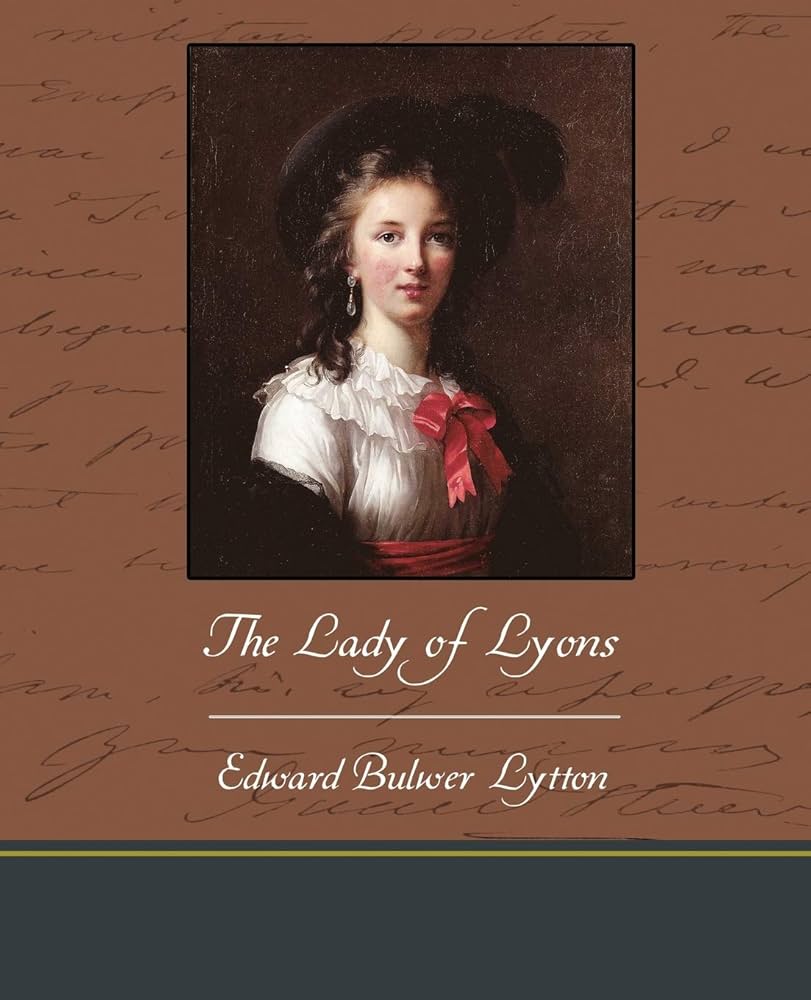Scene V — The Lady of Lyons
byScene V drapes its tension in twilight and moonlight, revealing a turning point not with action, but with quiet conversations laced with implication. The modest exterior of the Golden Leon becomes the unlikely backdrop where falsehoods begin to unravel. The landlord and Janet, though common in status, share a sharp-eyed view of the guests’ shifting behaviors. Their amused chatter captures the absurdity of Melnotte’s elevated act, noting how sudden grandeur does not mask unfamiliarity. Pauline’s aloof inquiry about the best room reveals her discomfort, exposing the cracks in the illusion crafted for her. These villagers, unwitting observers, reveal how pretension stands out more than it blends in.
When Beauseant and Glavis enter, their tone is unmistakably mocking. They relish the spectacle unfolding—Pauline, the proud beauty, now stranded in an inn, far removed from the lavish castle she imagined. Their talk of a palace beneath the Alps is a cruel fantasy, a reminder of how deception can be dressed as romance. Each jest is laced with smug satisfaction, revealing not only disdain for Melnotte’s plan but their deeper bitterness toward Pauline’s past rejection. The setting sun casts long shadows, both literal and figurative, over a plot built on pride and revenge. The night, it seems, will offer no peace for those who have manipulated love.
Melnotte’s arrival shifts the tone with the weight of conscience. His voice, once used to charm and fabricate, now quivers with remorse and resolve. No longer trying to play a part, he confronts the two men with clear defiance. His warning to them is not theatrical—it is protective, almost paternal. Beauseant’s sarcasm, punctuated by the offer of money, lands like a slap. The purse, meant to humiliate, is rejected with fury. Melnotte’s comparison to Judas strips away any pretense, showing that the betrayal of trust, especially in love, carries a sting that money cannot soothe.
What emerges from this exchange is the first glimpse of Melnotte as a man shedding illusion. His shame is no longer hidden. Though he constructed the lie, he now sees how deeply it cut not only Pauline, but himself. The mention of taking her to his mother’s home is not about hiding from shame—it is about finding a place where truth, however painful, still holds space. For the first time, Melnotte’s desire is not to impress, but to protect. This transformation from deceiver to defender is what gives the scene its emotional gravity. He does not yet ask for forgiveness, but he begins to act as if he’s worthy of it.
When Pauline appears, the shift is immediate. Her words, light and annoyed, contrast with the emotional weight just exchanged. She speaks of rudeness, unaware of the turmoil beneath Melnotte’s silence. Her presence reminds him of the cost of his actions—not just lost trust, but the innocence of someone dragged into a lie too complex for kindness to fix. Yet her entrance also signals that not all is lost. She is still here. She walks into the moonlit scene not as a queen, but as a woman bewildered by her circumstances. The illusion may have broken, but something deeper—a chance for truth—remains possible.
For readers, this scene marks the beginning of reckoning. Melnotte’s regret is no longer private. His confrontation with Beauseant forces the audience to see how easily love can become a pawn when pride goes unchecked. The most powerful transformation here isn’t in status or appearance, but in Melnotte’s priorities. He chooses protection over performance. This subtle but profound change sets the course for everything that follows. It’s a reminder that redemption doesn’t begin with apology—it begins with action. And sometimes, the most heroic act is not one of grandeur, but one of quiet accountability.
Scene V builds on this momentum by intertwining themes of class, ego, and sincerity. The setting, humble and unremarkable, mirrors the stripping away of all pretenses. Melnotte’s evolution is juxtaposed against Beauseant’s consistent cruelty, reinforcing the idea that nobility is not inherited but demonstrated. As night deepens, so does the complexity of Melnotte’s feelings. His growing awareness of Pauline’s vulnerability strengthens his resolve. Her presence, though unaware of the full betrayal, stirs something honest in him. In her confusion, he sees what he has damaged. In her proximity, he finds what he must now protect.
The emotional core of this scene lies not in confrontation, but in transition. Melnotte begins to see love not as something to be won through performance, but as something to be honored with truth. The implications are powerful: false images may draw attention, but they cannot sustain real connection. Pauline’s entry into the moonlit street—unaware, still processing—offers a silent question that hovers over the scene. Can love survive when its foundation has been shaken? Scene V does not answer it yet, but it asks it clearly, drawing readers into the deeper moral heart of the story.

